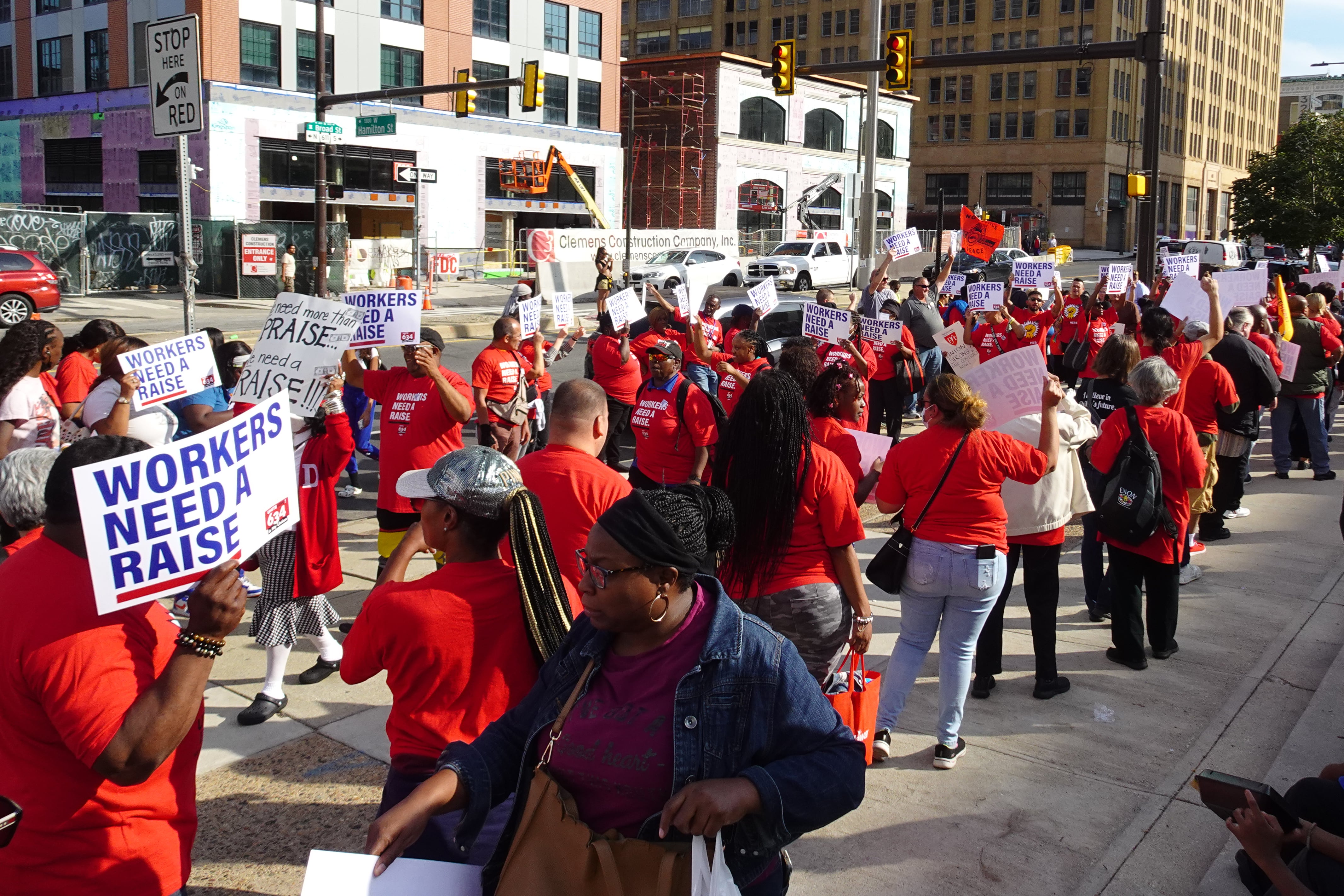Philadelphia’s school food service workers and climate staff have reached a tentative four-year collective bargaining agreement with the city school district that includes raises, an increase in health benefits, and conflict resolution training.
Officials with the Unite Here Local 634 union — which represents 1,900 food service and student climate staff employees in the district — said Friday the initial deal is “nothing short of historic.”
News of the agreement came just 48 hours before the workers’ current contract was set to expire. The deal averts the threat of a strike that could have crippled school operations across the district. Earlier this month, the union’s members authorized a strike to be called “if and when” union leadership “deems it appropriate.”
The union said in a statement its members will vote to ratify or reject the contract “in the coming days.”
Nicole Hunt, president of the Unite Here Local 634 union, said in a Friday statement that her members “have won what they deserve.”
“We are the heart of Philly schools. We are the people that keep our kids fed and safe,” Hunt said. “This contract honors the tireless, essential work that each and every School District of Philadelphia Food Service and Student Climate Staff employee does day in and day out … above all, it provides dignity.”
Monique Braxton, a spokesperson for the district said in an email the tentative agreement “reflects our commitment to supporting our food service and student climate staff … These valued team members provide our students with nutritious meals, build positive school climates, and serve as important members of our school communities.”
Hunt said that throughout the negotiation process, “the School District told us that our proposals were not feasible,” but now that they’ve reached an agreement, “we learned that family-sustaining wages and other basic protections were feasible after all.”
Braxton said district leadership “look[s] forward to continuing our shared focus on providing quality educational services to Philadelphia’s students and families.”
Here’s some of what’s in the agreement:
• An immediate raise and $500 signing bonus for all employees and a 29.7% wage increase over four years for the union’s lowest paid employees. The union said each member will get at minimum a 23% wage increase over the course of the contract.
• An increase in health and welfare benefits for all school climate staff.
• An end to a policy that paid probationary employees 93% of their contractual wage. It would also shrink probationary periods for both food service and climate employees, which the union says “will guarantee that they qualify for benefits and have job security as soon as is appropriate.”
• A policy and process to allow climate staffers to “opt-out of split shifts,” which the union says “force employees to work non consecutive shifts throughout the day, making it more difficult to work second jobs and attend to other personal matters.”
• Walkie-talkies for climate staff workers. The union says these would help their members “immediately respond to emergencies in hallways, lunchrooms, and school yards.”
• Reimbursements for food service employees required to wear non-slip shoes.
• Conflict resolution and de-escalation training for student climate workers.
Carly Sitrin is the bureau chief for Chalkbeat Philadelphia. Contact Carly at csitrin@chalkbeat.org.





